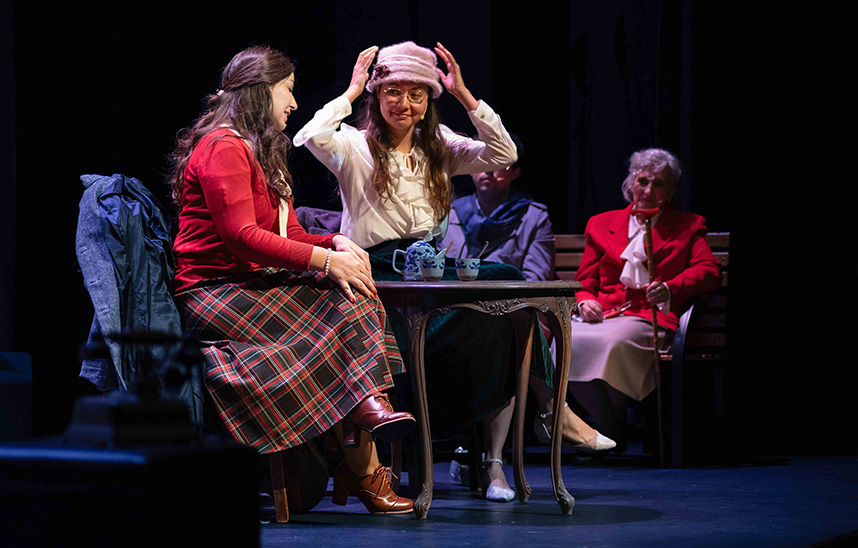Palliative care on the scene
On the occasion of World Palliative Care Day, researchers from the University of Navarra take to the stage of the MUN with a play on the importance of accompanying people in pain.

If we talk about palliative care, we inevitably think of a painful moment, probably of a loved one. It can even be a taboo subject. The MUN has programmed the play "Cicely and David".Cicely and David"next Monday, October 14 at 7:30 p.m., to highlight the importance of this accompaniment and on the occasion of World Palliative Care Day.
Translated, directed and performed by palliative care researchers from the University of Navarra -members of the ATLANTES Group of the Culture and Society Institute (ICS)-, the play tells the story of Cicely Saunders, a pioneer of palliative care in the world. Tickets are still available at the box office and on the website.
"This work not only seeks to pay tribute to its promoter, but also to tell the story of modern palliative care and its evolution in a broad and accessible way," explains predoctoral researcher Alicia Hernando Garreta, who has led the project.
The universality of the topics addressed, such as illness, death and hope in the face of human suffering, Hernando continues, "transcends age and profession and reaches anyone interested in the complexities of the human condition and care".
In "Cicely and David," Paul, grieving the loss of his wife, meets Cicely Saunders, founder of palliative care, at St. Christopher's Hospice in London. Through scenes alternating between 2005 and 1947, the relationship between her and David Tasma, a Polish immigrant with cancer, is presented. The story reveals the emotional connection between the two, the tensions this causes between the protagonist and her friend, and the inspiration for founding the Hospice. It concludes by highlighting the importance of compassion and the personal transformation experienced in caring for serious illness.
The ATLANTES Global Observatory of Palliative Care research group of the Culture and Society Institute aims to foster a positive mindset towards the care of patients with advanced and irreversible illnesses through research and outreach. In addition to performing, the research team has been responsible for the translation and adaptation of David Clark's play, with the support of the Pía Aguirreche Foundation.